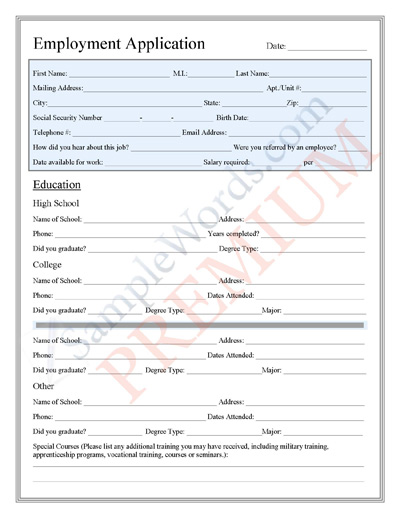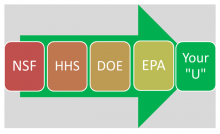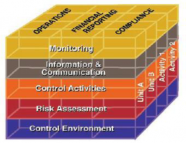Article Posted October 25, 2012

Employment Background checks as an Auditable Issue
As Vice Chancellor for Human Resources, my role is to provide guidance to institution Chief Human Resource Officers and hiring departments on BOR human resource policies and compliance issues. The BOR Human Resource Department, along with my colleagues in the Legal Affairs Office, work with institutions to ensure background investigations are conducted and conform to policy.
What is the policy?
The policy on employment background checks is found in the Human Resources Administrative Practice Manual employment section. Simply stated, beginning July 1, 2002, all candidates for employment with the University System of Georgia and USG institutions are subject to a background check as a condition of employment. The background check covers the following:
• A state and federal criminal history check covering a minimum of seven (7) years;
• A nationwide sex offender search;
• A social security number check;
• For all professional, faculty, and academic positions, an academic credentials check; and
• Credit check for employees who manage P-Card purchases.
A person who is offered employment in a “position of trust” may be hired conditionally pending the result of a more extensive state and federal criminal history investigation. Positions of trust may involve, but are not limited to, work with children, secure access to facilities, or access to financial resources, e.g., purchasing cards. Faculty members are also subject to the policies outlined in the Academic Affairs Handbook. Failure to disclose a criminal conviction and/or criminal history will disqualify a candidate for employment with USG.
What constitutes grounds for adverse employment?
Criminal conviction and adverse credit reporting would constitute grounds for ineligible employment with USG. Only criminal convictions and pending criminal cases may be considered when determining a candidate’s eligibility for a specific position or employment. Conviction of a criminal drug offense can disqualify an individual from employment. There are provisions that govern offenders and/or persons convicted of more than one criminal drug offense. Felony convictions and convictions involving crimes of moral turpitude, (i.e., murder, rape, vicious assault), automatically disqualify an individual from employment in a position of trust. A person may have a criminal background history, but that history may or may not permanently disqualify them from employment with USG. The USG Background Investigation Committee will consider the responsibilities of the position, the type of conviction, the amount of time elapsed since conviction, and restitution made, to determine a candidate’s eligibility.
Candidates who have unfavorable credit histories may be ineligible for employment depending upon the specific issues of their credit reporting. Credit issues involving delinquent student loans, excess installment debt, default on loans and bankruptcies, unpaid collections, unresolved judgments, and other forms of credit delinquency may adversely impact employment decisions. The Human Resources Manual provides guidelines for institutions to use when interpreting credit reporting issues.
What Should Institutions Do to Comply with Conducting A Background Investigation?
The employment background check process is auditable. Therefore, ensuring that employment guidelines are accurately followed is critical for legal and administrative compliance. Following is the process for conducting an employee background investigation.
Hiring Manager
• Include the background investigation requirement in the job posting indicating that finalists will be required to submit to a background investigation.
• Obtain a signed consent form from the candidate agreeing to the background investigation.
• Submit the signed consent form to the Hiring Office, who will initiate the Background Investigation into that candidate.
Hiring Department
• Initiate the background investigation.
• Obtain the investigative report.
• Notify the Hiring Department of the Background Investigation Committee (BIC) hiring determination. The BIC makes its decision about the selected candidate’s eligibility.
• Notify candidate of ineligibility by providing them with a pre-adverse action disclosure (candidate may respond to issues).
- If cleared, the candidate is eligible for employment.
- If not cleared, the candidate may dispute the issues in the investigative report privately.
• Notify the Hiring Department of hiring decision eligibility Background Investigation Committee
• Determines the candidate is eligible, and then the Hiring Office will notify the Hiring Department.
• Determines the candidate is not eligible, and then prior to making this final determination, the Hiring Office must give a pre-adverse action disclosure to the candidate.
At each point in this process, documentation is issued between the Hiring Manager/Department, Hiring Office, and Background Investigation Committee. The correspondence about the background investigation must be included in the candidate’s hiring application, and ultimately in the employee’s personnel file.
After a candidate is hired, the employee continues to have responsibility for notifying the USG of any post-employment criminal actions. An employee is responsible for reporting new criminal actions to their Hiring Office within 72 hours of being charged with a crime and, if convicted, responsible for reporting their conviction with 24 hours of the conviction. Failure to report post-employment criminal activity may result in disciplinary action and/or termination of employment. Once reported, the BIC will investigate the criminal activity charges and determine the employee’s continued employment.
If you have questions about the process or require additional information, feel free to contact me for a consultation.

Marion Fedrick, Vice Chancellor for Human Resources
Email: marion.fedrick@usg.edu
Posted by Marion Fedrick
Published in: Policy Briefs
Most Recent in: Policy Briefs

COSO Internal Control Integrated Framework - 17 Principles
Posted by Randy Pearman
March 27, 2013

Extra Compensation Related to Federal Grants
Posted by OIAC
March 26, 2013

When Is the Auditor Audited?
Posted by Michael J. Foxman
March 26, 2013

Internal Control Issues Concerning Grant Awards
Posted by OIAC
October 25, 2012

COSO Internal Control Integrated Framework Proposed Updates
Posted by OIAC
October 25, 2012
View Articles by Category
Search
Contact
Internal Audit & Compliance
Board of Regents of the University System of Georgia
270 Washington Street, SW
Atlanta, GA 30334
Tel.: 404-962-3020
Fax: 404-962-3033
Email: .(JavaScript must be enabled to view this email address)

